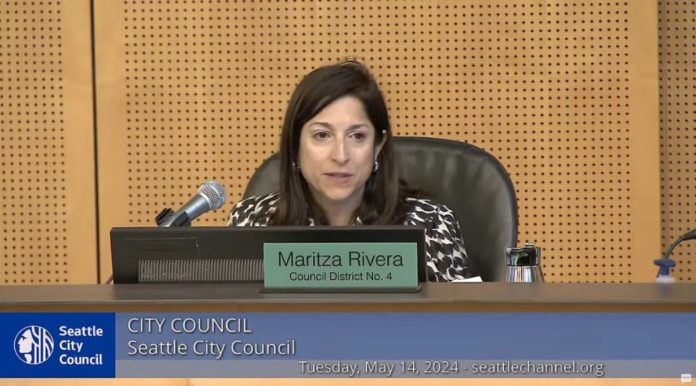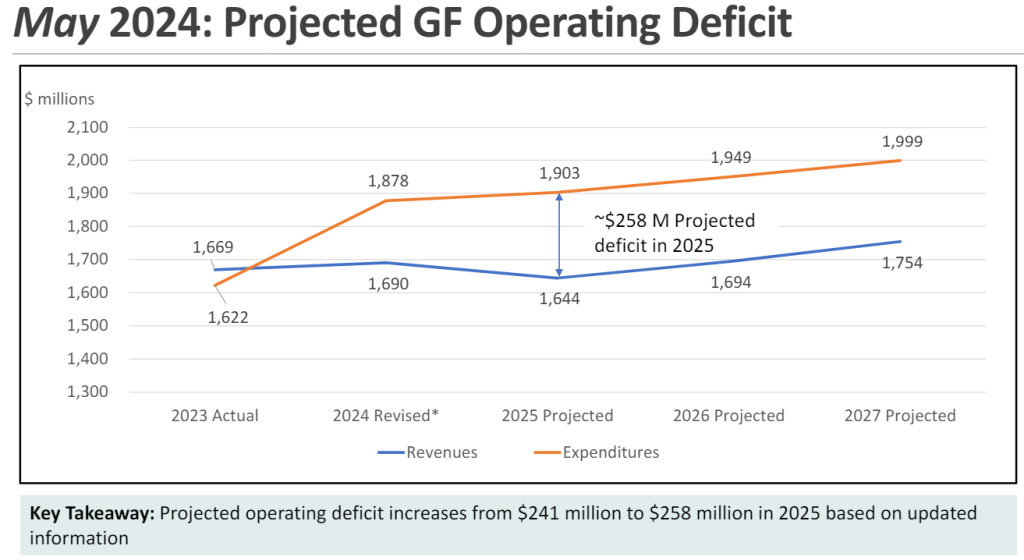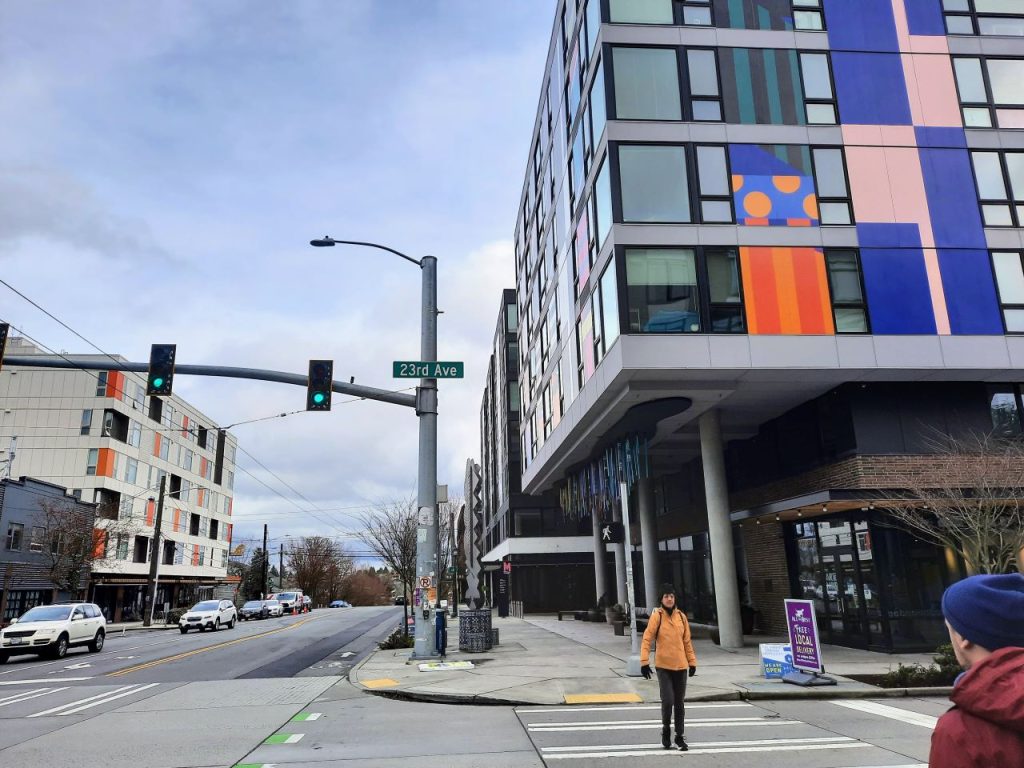
Here’s what you can do to fight this budget raid.
A social justice community library in Beacon Hill. 130 affordable apartments in the Central District. Development of a longhouse and cultural center in Northgate. More community gardens. A youth achievement center in Rainier Valley.
These are just a small sample of projects that could be in jeopardy of losing funding due to a last-minute amendment proposed by Councilmember Maritza Rivera. Rivera’s amendment would put a proviso on $25.3 million allocated for the Equitable Development Initiative (EDI) in 2024, meaning the money would be unavailable to spend without another council vote later in the year.
The EDI was launched back in 2016 after a racial equity analysis showed that as Seattle grows, communities of color, including those in South Seattle, will be impacted by displacement and a loss of access to opportunity. The EDI aims to address these issues by providing impacted communities with funding to invest in purchasing real estate and developing projects that will give their residents better access to housing, jobs, education, healthy food, and cultural expression.
As Mayor Bruce Harrell said last fall, “Displacement pressures are disproportionately impacting communities of color, and Seattle is actively committed to supporting organizations that are working to keep communities in place. The Equitable Development Initiative embodies our One Seattle vision, bringing to the forefront innovative community-based programs that increase affordable housing and economic opportunity, and ensure vibrant cultural spaces find permanence in our city.” If South Seattle, low-income communities, and BIPOC communities are in fact a part of One Seattle, the EDI is a crucial step toward fulfilling the mayor’s stated promise.
Originally funded by the sale of a city-owned lot, the EDI now depends on the JumpStart payroll tax for most of its money.
Rivera’s proviso adds a host of hoops to jump through in order to preserve the $25.3 million for the EDI. In addition to needing another council vote later in the year, it would require all remaining funds from 2023 to be spent, a difficult proposition since these projects tend to take several months to years to execute. It also demands a labor-intensive report be written in the next four months. Otherwise, the money will be rolled back into next year’s fund balance instead of remaining available for developing future EDI projects.
It’s likely this proviso will be justified as necessary due to the city’s current $258 million budget deficit for 2025. But taking this money away from the community would be breaking a promise that has been made repeatedly while turning away from efforts to address historical wrongs.

When combined with the deletion of all new anti-displacement strategies from the draft comprehensive plan that will shape the future of Seattle’s growth for the next two decades and rumors of the City Council considering taking back the $27 million promised to participatory budgeting projects, it is easy to wonder if our elected officials are taking seriously an ongoing commitment to invest in Black, Indigenous and people of color (BIPOC) communities.
A recent analysis shows the budget deficit is primarily being driven by high inflation, which in turn has led to higher labor costs. We know high inflation disproportionately impacts low-income households. A quick look at Ballard Food Bank’s 2023 annual report shows the number of household shopping visits and deliveries in 2023 more than doubled from 2019, while emergency financial assistance provided quadrupled. And homelessness in King County increased by 23% between 2022 and 2024 and disproportionately impacts communities of color.
Ultimately the mayor and City Council will get to choose who will bear the brunt of the 2025 budget shortfall. Should they defund the EDI, they would be unambiguously choosing for the impact to fall upon people who are already struggling, as well as breaking the City’s past promises to invest in marginalized communities and work to end racial inequity.
However, there is another way forward for our elected leaders. They can aggressively pursue new progressive revenue options such as a new city capital gains tax or increasing the JumpStart payroll tax. These taxes would place more of the inflationary burden on large businesses and wealthy individuals instead of lower-income folks who rely on City services.

And they can repurpose the Seattle Police Department’s (SPD’s) slush fund for the so-called ghost cops — open police officer positions the department won’t be able to fill any time soon. Last year these ghost cops accounted for about $31 million, and that number will only grow. SPD officers just signed a contract for a compounded 24% raise plus back pay, and the latest SPD hiring estimate shows the department will be down by at least another 21 officers by the end of the year. And that estimate doesn’t take into account the possibility of more officers leaving after getting their long-awaited back-pay payout.
When Harrell was running for mayor back in 2021, he made this promise: “I’ll also be a mayor committed to real equity and opportunity in southeast Seattle — celebrating and building upon Africatown, Chinatown ID investments, and other community-specific initiatives rooted in creating affordable, inclusive, and welcoming neighborhoods.”
Let’s hold him to his word. The City Council is scheduled to vote on the amendment to defund the EDI on Tuesday, May 28, at 2pm. You can give public comment at the beginning of the meeting either virtually or in person, or if you’re unavailable at that time, you can contact your councilmembers now and let them know how much the EDI matters to you.
This article is a cross post from the South Seattle Emerald, where it first appeared.
Amy Sundberg is the publisher of Notes from the Emerald City, a weekly newsletter on Seattle politics and policy with a particular focus on public safety, police accountability, and the criminal legal system. She also writes science fiction, fantasy, and horror novels. She is particularly fond of Seattle’s parks, where she can often be found walking her little dog.


